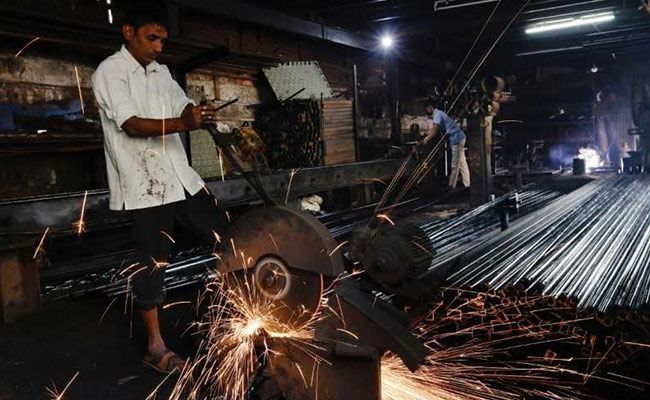The Nikkei Manufacturing Purchasing Managers’ Index, compiled by IHS Markit, rose to 53.1 in June from May’s 51.2, the highest since December.
BENGALURU: Factory activity grew at its fastest pace this year in June on robust output driven by solid demand, according to a business survey that also showed input costs increased the most in nearly four years. That points to continued strong economic activity in the quarter that ended in June, after Asia’s third-largest economy grew at its quickest pace in nearly two years in January-March.
The Nikkei Manufacturing Purchasing Managers’ Index, compiled by IHS Markit, rose to 53.1 in June from May’s 51.2, the highest since December. The reading has been above the 50-mark, which separates growth from contraction, for 11 consecutive months.
“India’s manufacturing economy closed the quarter on a solid footing against a backdrop of robust demand conditions, highlighted by the sharpest gains in output and new orders since last December,” Aashna Dodhia, an economist at IHS Markit, said.
Orders from international markets rose at the strongest pace since February, Dodhia added.
IHS Markit made no mention of increasing global trade tensions, which are worrying manufacturers in many countries.
The June sub-index tracking input costs jumped to nearly a four-year high of 58.6 from May’s 54.7 per cent, indicating a further rise in inflationary pressures which manufacturing firms are at the moment reluctant to pass on entirely to customers.
Retail inflation is rising in India, and through May was above the Reserve Bank of India’s medium-term target of 4 seven straight months in May. This bolsters expectations the central bank, which raised the key interest rate in June, will increase it again in August.
While manufacturing firms in June increased hiring at the fastest pace since December, concerns over rising price pressures and higher interest rates pushed down the long-term output index – a gauge of optimism on future business – to an eight-month low.
“The dip in optimism partly reflected concerns of a potential market slowdown in the year ahead,” Dodhia said. “Indeed, some of the key challenges to the 12-month outlook include tighter domestic monetary policy and persistently high inflation.”


